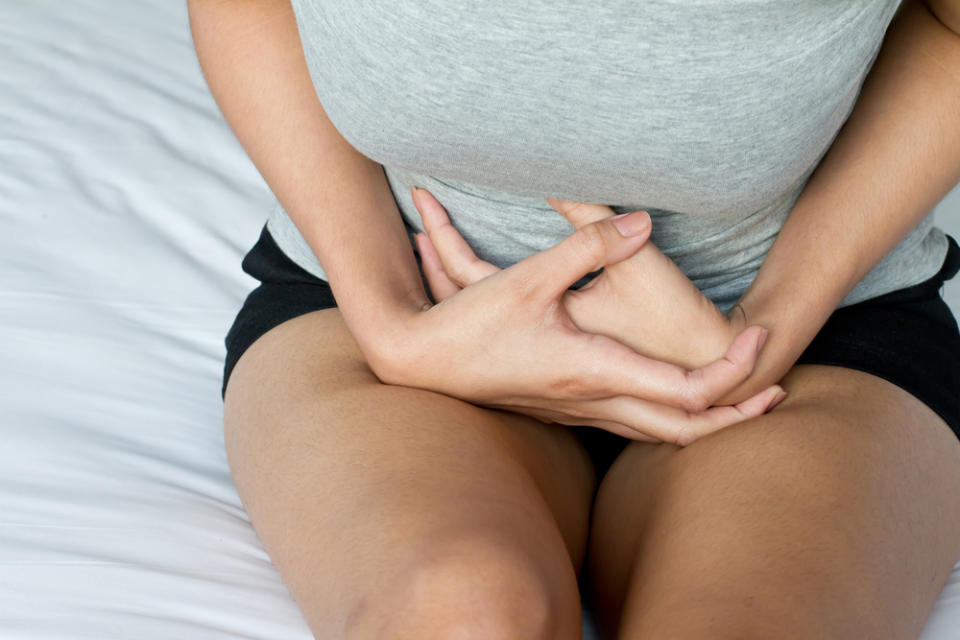We ask an expert: Do women deal with stomach problems more than men?
We ask an expert: Do women deal with stomach problems more than men?
“Women experience stomach problems more than men” is a statement we’ve definitely heard at least once in our lives. For many, it’s also something they’ve seen in action. Perfect example: The International Foundation for Functional Gastrointestinal Disorders reveals that about 2 in 3 people who cope with irritable bowl syndrome (IBS) are women. This is out of the 25-45 million individuals who deal with this disorder in the United States.
Considering that the above statistics solely relate to IBS, we’ve been wondering if there’s more to it. To find out if women really deal with more stomach problems, we contacted gastroenterologist Dr. S. Radi Shamsi (who works at the Los Angeles Gastroenterology Clinic) with the following questions…
In your experience, have you found that women cope with stomach problems more than men?
“It is true, both statistically in the literature as well as in my personal experience. It remains unknown whether or not this is due to women being more open to seeking medical aid or a true difference in the medical issues of the two sexes. The statistics of this difference don’t bear out in all disease states, but irritable bowel syndrome (IBS) is classically thought to have a female preponderance.”
Why do you think this is?
“There are studies suggesting there are neuronal differences in how men and women receive signals to their brain from the gut, and that more discomfort is sensed by the female. There is still other data suggesting physiology is different in digestion (i.e. women’s intestines are perhaps slower, transmit noxious/unpleasant stimuli differently, or are somehow affected by the hormonal states).
Some sociological studies suggested that because women enter the world of medical care earlier in life (eg. via gynecology visits), that they are more comfortable seeking medical care for other ailments – while their male counterparts are less likely to seek care (sometimes until they get married and the wife makes them get checked – partly a joke here and partly my experience in the office).”
What are the most common digestive issues women deal with?
IBS: “Hands down, IBS is the main one. Weather it be bloating, constipation, or diarrhea, this is the main complaint statistically. It is now clear that history of infectious colitis (inflammation of the colon) is one of the predominant causes of IBS, but stats on infections are equal. It has not been fully worked out why women have the higher statistics here. You can search the body of literature on it and basically find whatever answer you are searching for, meaning to me that we have no idea what’s causing the gender divide in IBS.”
Gallstones, dyspepsia, acid reflux: “May relate to high estrogen states.”
Crohn’s disease: “There is a slight female preponderance in Crohn’s disease.”
Do you think women face such issues because they diet more than men? Because of menstruation? Stress? Something else?
“Certainly, dietary restrictions play a great role in the gastrointestinal (GI) tract, and this may explain some of the gender gap, as many women have inadequate fiber intake, but this is the old chicken and the egg question. It is my personal opinion that some women limit their fiber intake and have more constipation, but perhaps the physiology causes the constipation, and the fiber just bloats them more, so they avoid it… Jury is out.
“Hormonal variation through the month, as well as changes on birth control pills are common complaints that I see, and am sure many of your readers can attest to.
Regarding stress, or rather perceived stress, which we know causes a cortisol spike (and that can alter physiological function), I am not sure women have the market cornered on that one. I’m afraid it is a general human condition. Many studies have suggested stress plays a role in inflammatory bowel disease (IBD), but I have no data that women are more susceptible to its effects than male counterparts.”
What would be your #1 piece of advice to women who’d like to stay away from stomach issues?
“Maintain a diet that’s of moderate fiber, low in fatty foods, and high in antioxidants and adequate hydration.
Also, avoid fads that have no proof in scientific study (eg. colonics, raw milk, or probiotics ‘just to be more healthy’).
If symptoms persist, seek out qualified medical care early, as most issues are easier dealt with before they get out of hand.
Ultimately, it’s important to remember that a little information from the internet can be a very dangerous thing (this is a recurrent issue me and my colleagues experience).”
The post We ask an expert: Do women deal with stomach problems more than men? appeared first on HelloGiggles.





